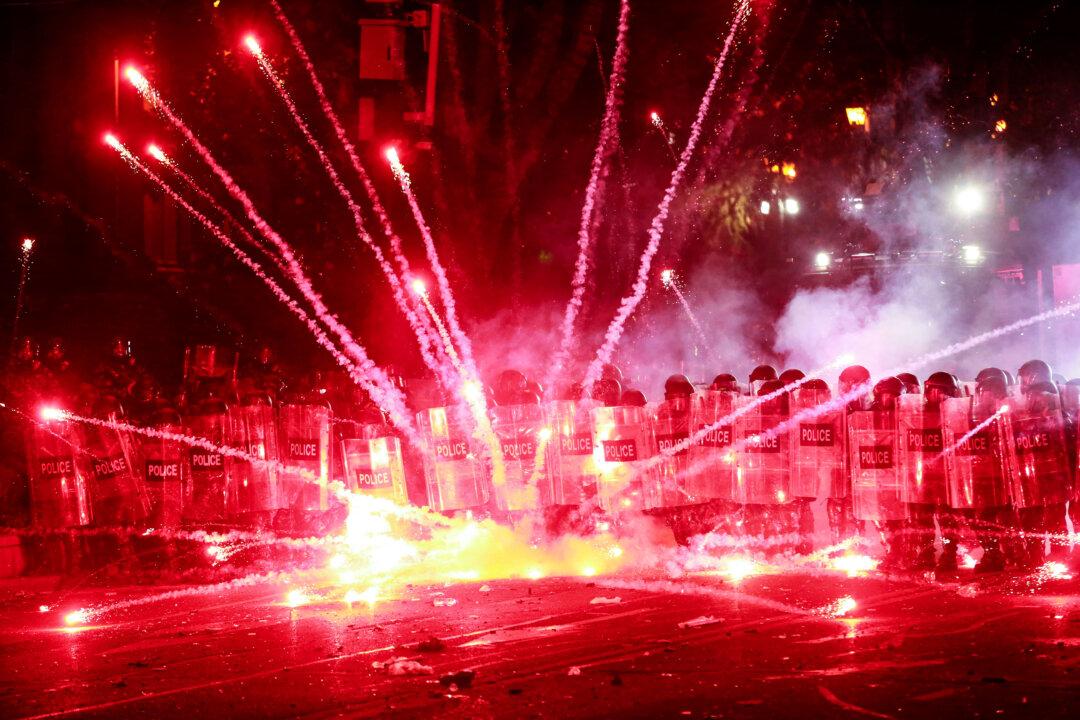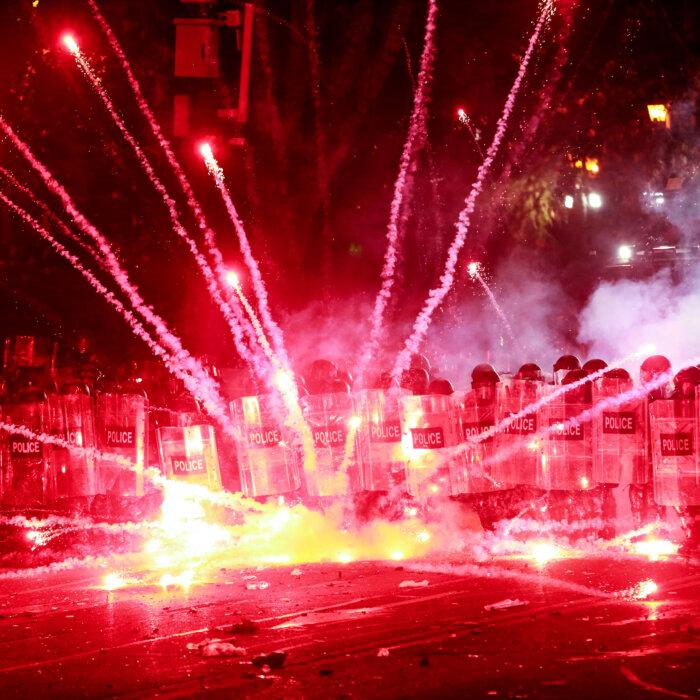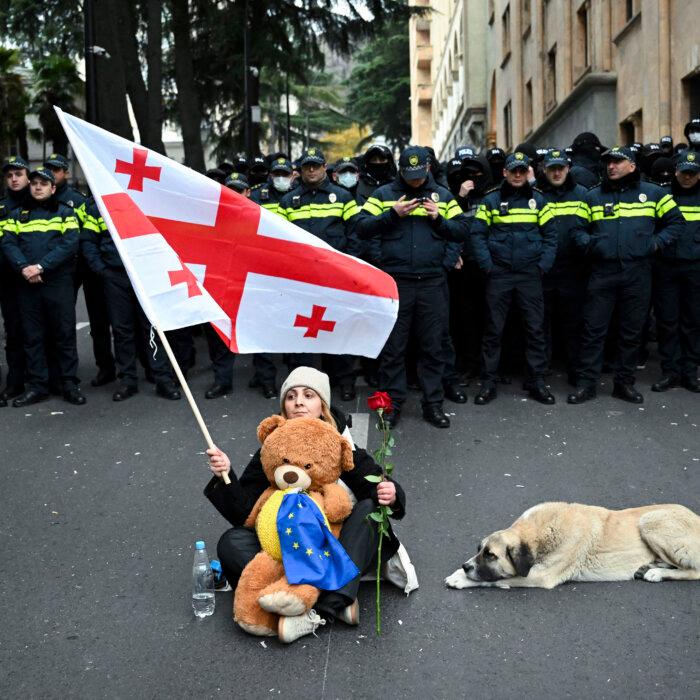Georgia’s police have been accused of torturing people arrested during street protests that have raged for six days against the government’s decision to suspend talks to join the European Union.
Demonstrators gathered in Tbilisi again on Tuesday evening as the standoff showed no sign of relenting.
As they did on previous nights, riot police used water cannons and tear gas to push back the protesters, who threw fireworks and erected barricades on the Georgian capital’s main street.
Almost 300 protesters have been detained, and 26 people, including three police, have been hospitalized in the course of the violence.
The nation’s public defender, Levan Ioseliani, whose position is to protect citizens’ rights, said people had been subjected to “the harshest treatment” by officers.
“In most cases, they have received serious injuries in the face, eye, and head area, which practically excludes even the possibility that the police used the necessary, proportional force against them every time,” Ioseliani said in a statement.
“The location, character, and degree of the injuries create a credible impression that the police use violent methods against citizens in order to punish them. Intentional, severe violence for the purpose of punishment constitutes an act of torture.”
Tamar Kordzaia, a member of the Unity National Movement opposition group, said, “The more force they use, the angrier people become, because everyone they arrest has relatives, and everyone understands that this is injustice.”
The United States has also previously decried the use of “excessive force” against protesters in the country.
Georgian Prime Minister Irakli Kobakhidze has repeatedly praised the police, saying they have performed better than officers in Europe and the United States.
The country has been gripped by crisis since last Thursday, when the Georgian Dream party, in power after a controversial election, announced it was halting the EU talks and renouncing any funding from the bloc until 2028.
Georgia has been one of the most pro-Western former Soviet states, but some say the current government is performing a volte-face and guiding the nation back into Moscow’s orbit.
In a setback for critics of the Kobakhidze government, the nation’s constitutional court declined to hear a lawsuit seeking to annul the results of an Oct. 26 parliamentary election on Tuesday.
It was officially won by Georgian Dream with almost 54 percent of the vote, but the opposition claims there was widespread fraud.
Prime Minister Kobakhidze has accused the demonstrators of trying to repeat the “Maidan” revolution that ousted a pro-Russian president in Ukraine in 2014.
However, he now claims that aim is “already over” saying the organizers had tried to grab power, but would now be brought to justice.
Georgian President Salome Zourabichvili, who backs the protests, told Reuters that there was no attempted revolution and that the demonstrators’ sole demand was to re-run the election.
The crisis follows months of upheaval over Georgia’s relationship with the West, and the EU in particular.
Georgia was granted candidate status by the EU in December 2023 on condition that it meet the bloc’s terms.
However, its accession was put on hold and financial support from Brussels was axed in June after a “foreign influence” law was passed.
The legislation, which critics have labeled a blow to democratic freedoms, requires organizations that receive more than a fifth of their funding from beyond Georgia’s borders to register as “pursuing the interest of a foreign power.”
It is similar in its construction to a law instituted by the Kremlin in 2012, which opponents of Russian President Vladimir Putin say is largely used to smear organizations critical of his government. The opposition in Tbilisi accuses the Georgian Dream-led government of doing the same thing, but the government says the laws are necessary to defend Georgia’s sovereignty.







